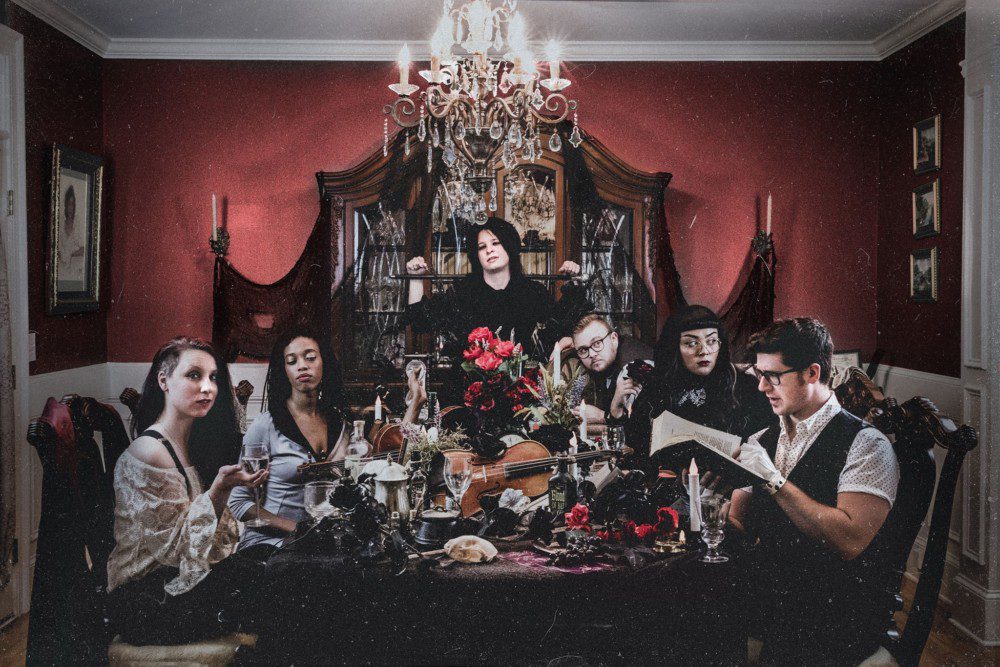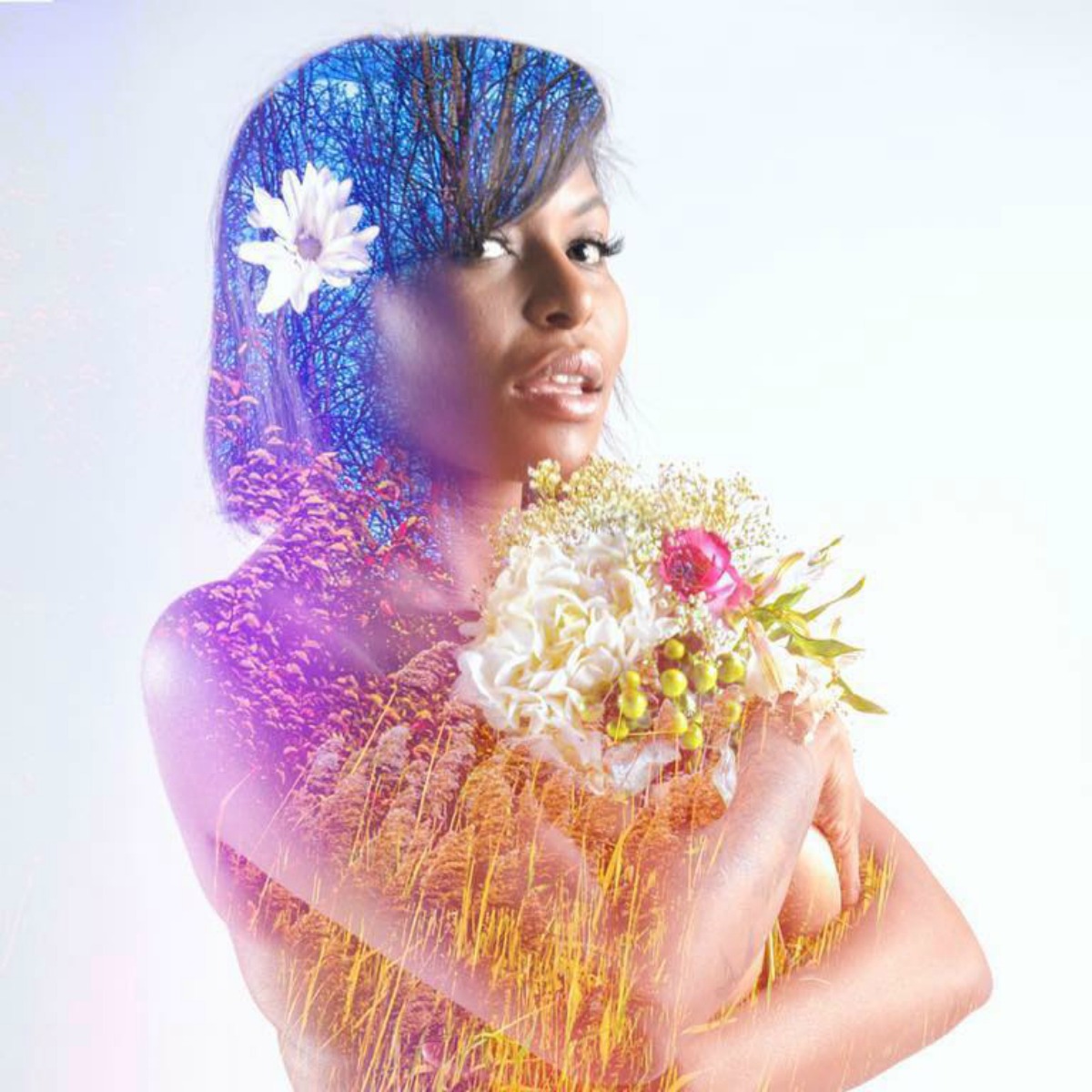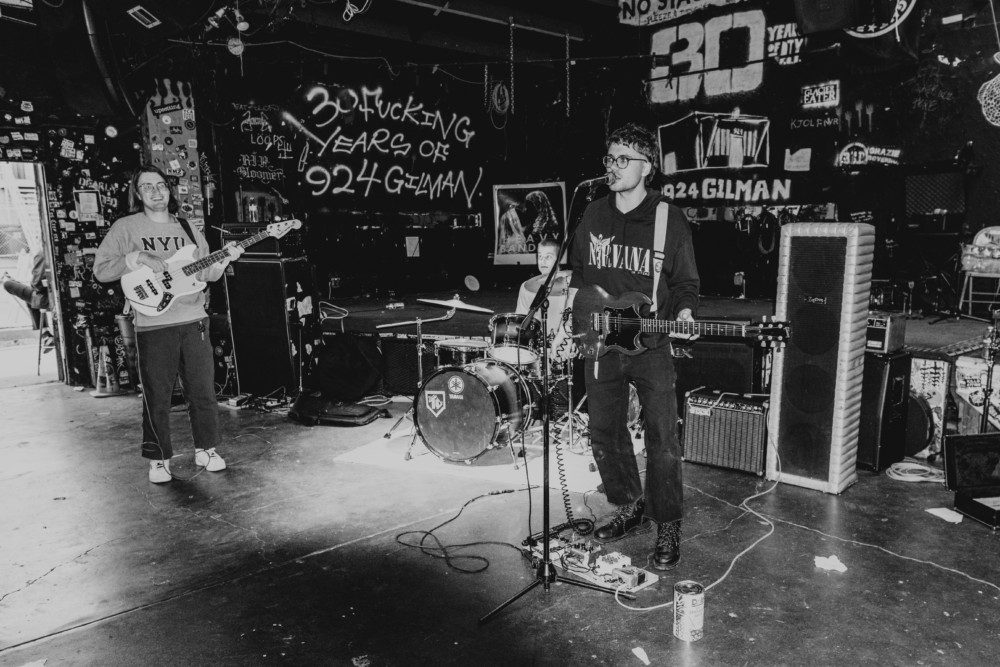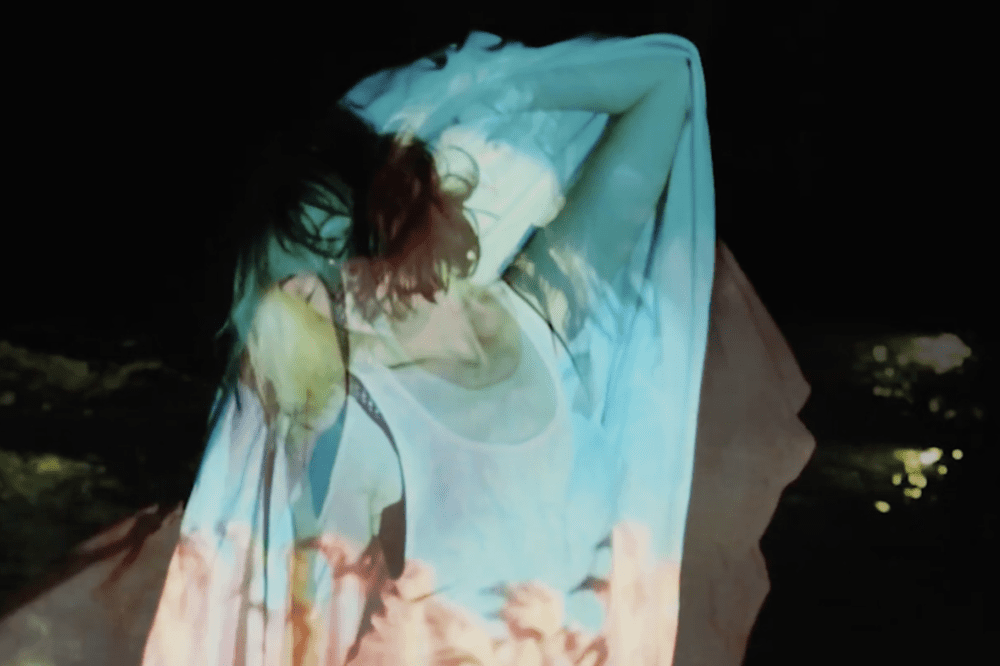PLAYING ATLANTA: Sarah and the Safe Word Reinvent Cabaret with Red Hot & Holy

Ever wonder what the music at Jay Gatsby’s funeral would’ve sounded like?
I have to admit, I hadn’t either, until I saw a one-liner in the bio of Atlanta sextet, Sarah and the Safe Word that simply said, “Jay Gatsby died, we played the funeral.” Theatrical and vividly operatic in theme, Sarah and the Safe Word craft stories that range from a demon-powered car race in “Formula 666” to the swashbuckling battle on the open sea in “Dead Girls Tell No Tales,” all the while offering a place for anyone and everyone to join in and enjoy the dark, swinging sounds of the 1920s.
Adding their own twist to the rock ‘n roll ethos, the band is as committed to their craft as they are to creating a safe, inclusive space for anyone who attends. The six of them, featuring founder and vocalist Sarah Rose, guitarist Kienan Dietrich, violinist Susy Reyes, Courtney Varner on the viola, Beth Ballinger on keys, and bassist Maddox Reksten, sat down with Audiofemme to share all the details on their latest record, Red Hot & Holy, their commitment to celebrating diversity, and their circa-1997 musical guilty pleasures.
AF: Let’s start at the beginning. How did the six of you come together to form Sarah and the Safe Word? Was this your first time in a band, or did any of you have a background in music?
KD: Sarah essentially started this band as a solo project, which they later asked me to join. We put together an EP basically just with our songwriting and a couple other musicians, but through the process of working on our first full-length, Strange Doings in the Night, we reached out to Susy, Courtney, and Beth to help write parts for their respective instruments, and we didn’t scare them off despite our best attempts so they stuck around afterwards. Maddox joined on a bit later but in the same spirit.
SR: Yeah. Prior to Sarah and the Safe Word, I had played in a band called Go, Robo! Go! that toured around the south for about eight years. When that band split up, I was pretty convinced that I was done with seriously chasing music. Safe Word was initially just intended as a solo project that I’d occasionally release music under, but it was Kienan who really encouraged me to consider making it into a band.
BB: I grew up learning classical and jazz standards, as well as musical theater. I eventually started doing solo stuff and briefly was in a band called The Bystander Effect. I was introduced to Kienan when he needed a piano player for a jazz gig, and I guess he liked my playing because he called me for a couple of other projects after that, including Strange Doings in the Night. After recording, Sarah asked if I would play a couple of shows with them, and the rest is history.
MR: My family was so void of musicians, my mom still wonders where I came from. My grandfather played guitar and sang old country western style music but that’s about it. He never let me touch his guitars, though. I picked up bass from a neighbor’s step dad who I’d beg to let me borrow his bass. Then my mom bought me my first bass of my own. I was in roughly five or six bands or projects since I was 14 and was just dead-set on making something work. I joined Safe Word on a last minute gig with the release of Strange Doings in the Night, which I had actually recorded some gang vocals for. They officially asked me to become a member sometime afterwards, right before we played Warped Tour.
AF: And now, for what might be the most over-asked question in the world, how do you describe your sound? It’s completely unlike anything I’ve ever heard and I’m obsessed.
SR: We usually call it “cabaret rock” if we’re trying to explain it quickly. Beyond that, all six of us have diverse musical influences just by nature of our different backgrounds, so there’s elements of jazz, swing, bluegrass, punk rock, post-hardcore, and Latin influence in there as well.
KD: We had this idea before our second record to play off the 1920s jazz sound but make it darker. We knew some bands had loosely touched on this before, thus why we use points of comparison like the first Panic! At the Disco record, but we felt enough of a personal connection to that artistic idea that we’d be able to put our own spin on it and speak with our own creative voice to say things that hadn’t been said yet. I’m a huge history nerd and the entire pre-Great War period starting from the Russo-Japanese war of 1905 going to the Great Depression is a fascinating and relevant stretch of time.
MR: As a huge history nerd, I love to explore the history surrounding music from the Gilded Age in America and even into Victorian era and through the 30s, 40s, and 50s. My taste has always been contemporary, though, when we’re talking favorite artists. I had always noticed that those two worlds met in a lot of artists I love. Panic!, My Chemical Romance, and the like. You’ll find those threads to be common among the six of us, despite our wide range of musical tastes and influences. The best way I can describe our sound is the six of us colliding and bringing to the table what we love. That cabaret-jazz-20s style happens to be a thread that connects all of us and it sits at the center of our sound. Whether or not it becomes the focus of a song or not, it’s always there hiding somewhere. But we love to put into the spotlight details from all of our tastes, whether that be Latin influences or straight up rock and roll.
AF: Who do you consider your greatest inspirations, sonically and visually?
SR: As a kid, I spent most of my summers in New Orleans, so jazz and Cajun music is just inherently a part of my DNA. Beyond that, the first album that I grew up with and loved was Rumours by Fleetwood Mac, because it was my mom’s favorite record and really my first introduction to a “rock band.” As a teenager, I had a big fascination with visual kei bands out of Japan like Malice Mizer, Dir en Grey, and Versailles, both for their aesthetic and their genre-bending. I also really love a lot of first wave east coast punk.
KD: Sonically I love bands that create unique worlds with their studio production, like Smashing Pumpkins or even Blind Guardian. I grew up on punk bands like Bad Religion and The Germs, moved on to Black Sabbath, then went through a Beatles phase late in the game. For visual inspiration, I love the fantastic realism of Zdzisław Beksiński and impressionists/post-impressionists like Monet and Van Gogh.
BB: Both of my parents are musicians, and my dad in particular plays a lot of jazz and blues. He taught me the C blues scale when I was 6 or so years old and I’ve been hooked ever since. I listen to a lot of jazz standards from artists like Ella Fitzgerald, Nina Simone, and Etta James, but I love anything bluesy where you can bend a vocal note or two. Sara Bareilles is one of my all time favorite artists. She is so brilliant in the way she sneaks jazz chords in pop songs, and her vocal melodies are always catchy. Stevie Wonder has always been a go to for me, and like Kienan I went through a Beatles phase as well. I’m also a big fan of Postmodern Jukebox and anything with that big band sound.
AF: How do you translate the theatrical, operatic feeling and atmosphere you create in the studio to the stage?
KD: We try to look at the studio and the stage as two different beasts. When we go into the studio, we’re essentially producing a movie, with all the cinematic flair we can incorporate. We know there will be things that just won’t work on stage, so the translation becomes more like an adaptation process. You try to find equivalents, like changing the dynamics or even instrumentation of a passage because you have more control over volume/frequency in the studio. There’s also just more room for mistakes on the stage, so you approach it with a looser, more improvisational attitude. It’s a lot of fun when you look at the studio and stage as two different mediums entirely.
AF: You just released a new record, Red Hot & Holy. What inspired the record? What was the writing and recording process like, and did it change in the two years since the release of your previous record, Strange Doings in the Night?
SR: We went into Strange Doings in the Night as a three-piece, with just the beginnings of an idea of what direction this band was heading in. I feel like that record was a good example of us “learning how to walk” in regards to incorporating strings, horns, and the overall theatricality of the band. By the time we started working on Red Hot & Holy, we were a seven piece that was writing together and able to approach all the songs as a cohesive unit. So, in a lot of ways, RH&H is the full realization of the process of discovery that we started with SDITN.
KD: We also learned not to reinvent the wheel a bit with regards to drum tones, guitar tones, etc. Our producer on RH&H, Aaron Pace, really made an impact in that respect by suggesting and incorporating sounds that matched our influences. He helped us learn which aspects of the recording need to stay grounded so we can put maximum weirdness into the aspects that don’t.
AF: You’re incredibly active in the Atlanta music scene, and you also bring a steadfast commitment to using your platform to uplift queer voices. Why do you think that’s so important, especially in the time we’re living in? How do you use your platform to uplift, encourage, and increase visibility for LGBTQIA+ artists, musicians, and fans? What else do you believe needs to happen beyond increasing visibility in order to overcome the lack of diversity in the music industry as a whole?
SR: Thank you for saying that! It’s something that’s really important to us as a band of queer people who have been privileged and lucky enough to be given a platform. We make an effort during each of our sets to let kids know that our shows are a safe space for anyone in the LGBTQ+ community. That also means being discerning about who we share bills with and where we play. The music scene can sometimes be a little unwelcoming to queer kids, so it’s always been a priority of ours to facilitate as much of a positive environment as we can for them. I think for a long time, there was this mentality that queer music should be relegated only to the DIY/basement scene here in Atlanta (and in no way do I mean to denigrate that community), but I think that’s changing. You’re starting to see more queer acts really being visible and shaping the musical and cultural identity of this city.
MR: As a queer trans man, growing up I needed so much more than what I was offered as far as places to go that were safe to explore gender and sexuality. When I was younger, there were a lot of parents (not my own) that saw me as a bad influence, whether it was my style, taste in music, or whatnot. It wasn’t safe to explore. My own mother encouraged that at home, but looking back I realize I would have thrived and become a much happier person much sooner had there been safe spaces outside my home, queer positive artists, and people putting themselves out there saying, “Hey, this is all okay!” For myself, I want to be what I didn’t have for queer youth. That’s so important to me. The music scene is a place full of queer youth who go out to shows and find freedom in that but it’s not always a welcoming place, so if we can build an environment where kids are safe and can be themselves, that’s what we strive for.
AF: How has Sarah and the Safe Word allowed you to fearlessly express yourself and be your most authentic self?
BB: When I started working with Sarah and the Safe Word, I was coming out of a really rough period of my life. My self-esteem was non-existent and it was actually encouragement from Kienan that got me feeling confident enough to work on some piano parts for the Strange Doings record. This band pushes me to new levels of playing and has helped me to grow and evolve as a musician. There are parts of the most authentic version of myself that I discovered through being involved with Sarah and the Safe Word, and sharing the stage with these talented (and very weird) friends of mine continues to show me new aspects of music and myself that I didn’t know were there.
MR: Being in this band has been so liberating for me. It’s not only given me a backbone of supportive friends and family but it’s allowed me to truly embrace who I am, [and with] an audience to share that with as well. I had just begun my journey exploring my gender, not even a couple years before I joined. I rose beyond the bad relationships I’d been in and did things I was told during that time I couldn’t do. In every aspect of my life this band has pushed me to be my most authentic self and take risks to live that way. I just hope we can do the same for those who listen to us.
AF: If you could give any words of advice or encouragement to your younger selves, what would it be?
SR: Don’t give up. Like I said, I was convinced I was done with music before I started this band. Three and a half years deep now with so many amazing experiences and five best friends, I am so glad I didn’t walk away from all of this.
MR: I would tell myself never to stop, but reiterate that over and over. It won’t be overnight. When I was younger I had that wild idea that my first band would make it big. I was 14. But everyone is different, every band is different. It’s not a race and there’s no timeline, no age cut off for success. There’s a lot to figure out along the way. I stopped playing music for two years due to an abusive relationship. I thought it was over then, that I’d never succeed in music, but then two more bands came and went before I ended up here in this wonderful group. Trust me, younger self, without the journey, none of this would be what it is.
KD: It’s going to take much longer than you think, and your parents are right that you’ll be happier if you also pursue a backup plan that puts more money in your pocket. Keep at it, but you don’t need to be a martyr.
BB: Don’t compare yourself too much to other musicians. It’s easy to get caught up in competition with other artists and comparing yourself can make you feel inadequate. There are a lot of different musicians out there and it is not at all a competition. Surround yourself with musicians that are more experienced in areas you’re unfamiliar with, learn as much as you can, and take chances by getting out there and collaborating with new people.
AF: Atlanta is at the epicenter of the arts and music scene in the south. What’s it like to be part of such a growing, evolving scene?
BB: To be honest, I think I’ve taken it for granted at times. Live music, a plethora of fantastic local bands, numerous venues that consistently pull national acts in, and no shortage of open mic nights have been aspects of Atlanta that I grew up knowing were available. There is so much to do every night of the week that you could literally see a different live musician every night of the week. One of my favorite things about the Atlanta music scene is the support everyone in the community provides for each other. Open mics are safe spaces to try out new music or even play in front of an audience for the first time and they can be found everywhere from downtown Atlanta to the suburbs. Local bands promote each other and jump in to defend each other when there is a source of negativity that is bringing the scene down. I’m proud to be a part of such an uplifting and supportive community.
AF: What’s your favorite place in Atlanta for a good time and a great show?
SR: I think The Masquerade, just in terms of its contribution to the cultural history of Atlanta, is undeniable. I’m excited to play there again soon! Beyond that, we’ve been so grateful to Smith’s Olde Bar lately for their willingness to really open their doors to us and let us put on so many fun shows on our own terms. I used to be really skeptical of house venues, but Mac’s Basement has done so much lately for stimulating the music scene around here and fostering a good community. Also, Connect Live in Woodstock is making some major moves for the music scene in the north metro area.
AF: Any musical guilty pleasures?
SR: Anyone who’s been around me long enough is aware that I know every Spice Girls lyric in existence. Including the b-sides. But that’s not really a guilty pleasure. I’m just a shameless Spice Girls fan. Actual guilty pleasures? I thought some of the songs on Paris Hilton’s record from the early 2000s were pretty great. Also, Matchbox 20 wrote better pop-rock choruses than anyone.
KD: My guilty pleasure is late-90’s, by-the-numbers alternative rock like Third Eye Blind and Everclear. Something about that music just speaks to me in an embarrassing way. I would normally say there’s no such thing as a guilty pleasure, since I think people should be free to enjoy what they enjoy without stigma, but I have to admit I judge myself for still listening to bands I listened to in middle school.
BB: I love Christina Aguilera. I have been following her since the beginning of her career, and I’m not even sorry about it. Having been on tour a few times now, I can confirm there have been several Safe Word van N*SYNC sing-a-longs with occasional Backstreet Boys and Britney Spears tracks thrown in, as well.
AF: Last one! What’s next for Sarah and the Safe Word?
SR: We’re heading up north in a few months to begin recording our next album. We’re also planning a big New Year’s Eve show to help usher in the roaring 20s (very on-brand?). Also I’m quitting the band to join the Spice Girls, sorry.
Keep up with Sarah and the Safe Word on Facebook.




